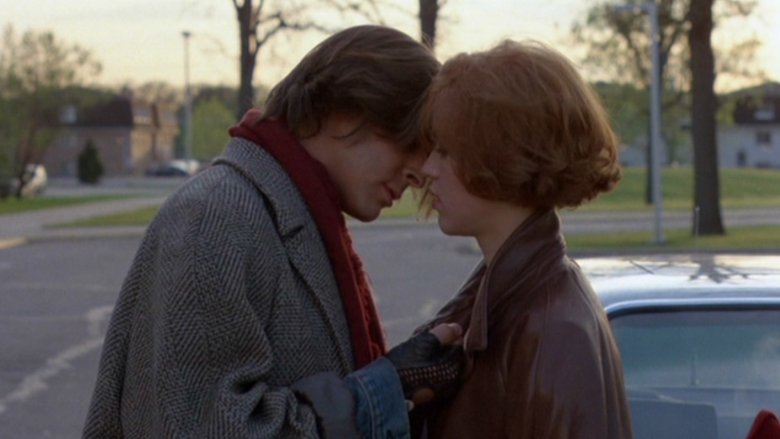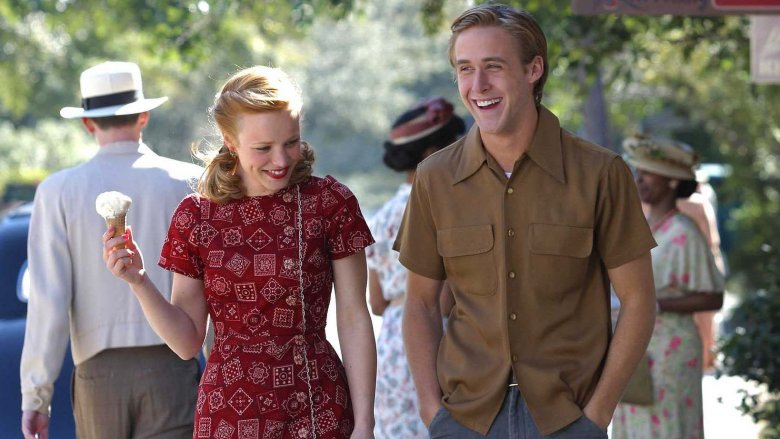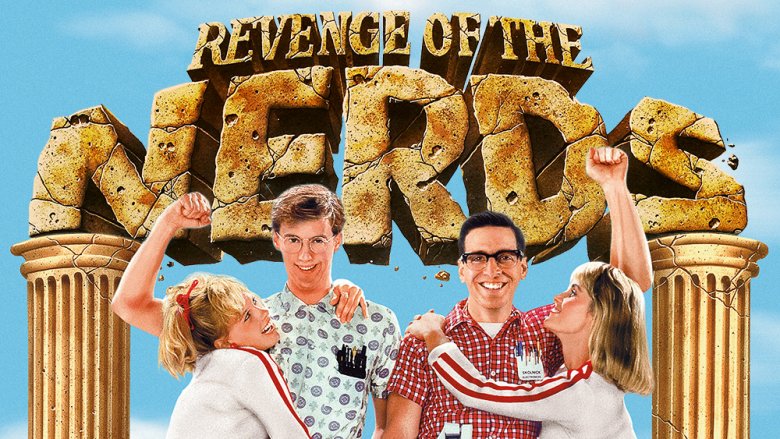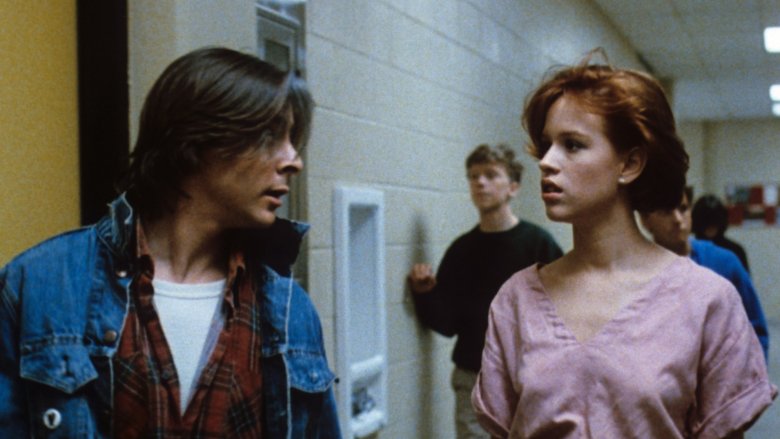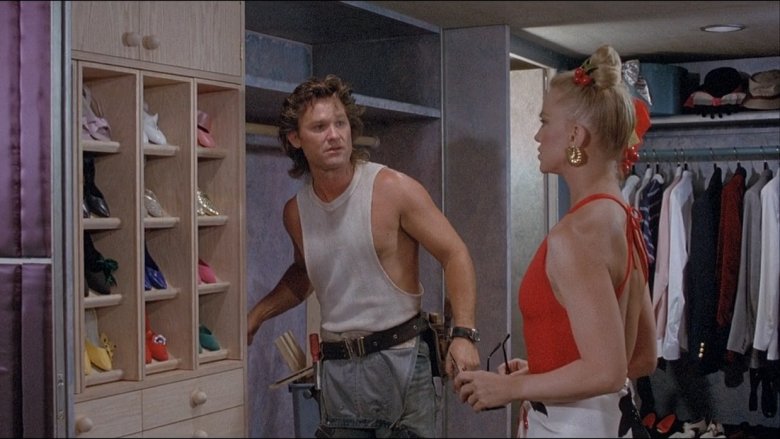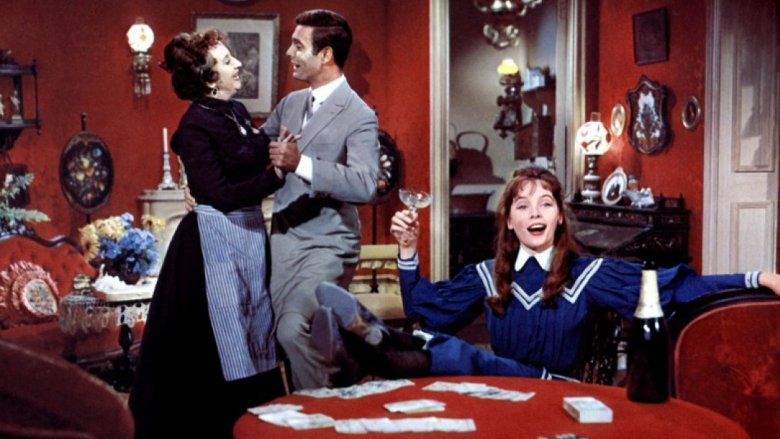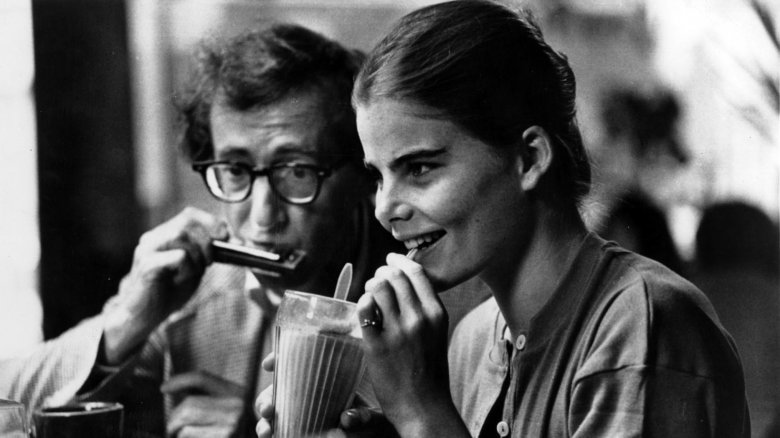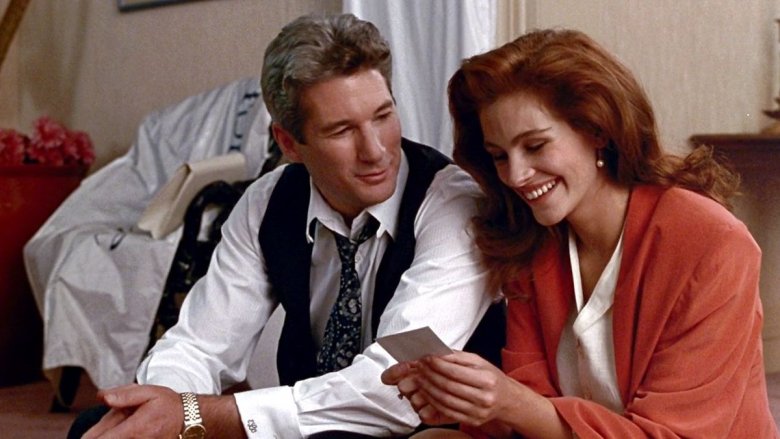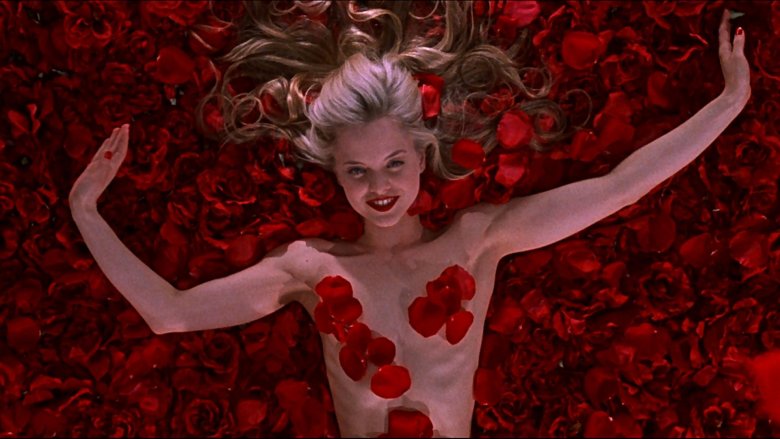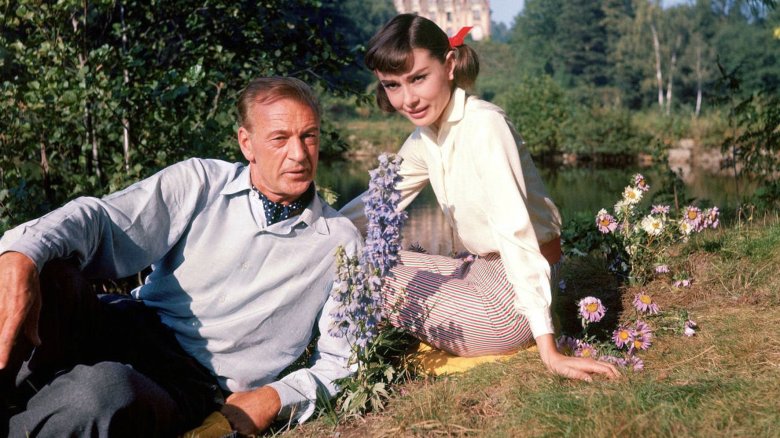Classic Movie Couples That Would Be Totally Taboo Today
There's nothing like love to make a movie into an unconquerable classic. An unlikely duo, a perfectly matched pair, a terrific twosome — anything goes with the right writing. Who doesn't know exactly what kiss is being referred to when people reference "a Spider-Man kiss"? Who can't complete the sentence, "love means never having to say..."? From Gone with the Wind to Titanic, cinematic romance dominates our culture and our fuels our idea of what love should look like, sound like, and feel like.
But not all silver screen sentimentality is created equal. Given that Hollywood is just about 100 years old now, quite a few famous film flings were created in very different times, when the world had very different ideas about relationships and romance. Here are some of the love stories that rank among the most shocking when taken in a modern context, from the awfully odd to the downright dangerous.
The Notebook (2004)
The Notebook became a sleeper hit on the strength of its central romance: the story of Noah, the poor boy from the quarry, and Allie, the elegant heiress. Theirs is a love forbidden by class and family, yet so overwhelmingly powerful it could not be stopped. Despite the intercession of World War II, parents that meddle in their correspondence, and Allie's engagement to an entirely different man of her own social standing, they end up together, and live in bliss until their tandem death as tragically befuddled, entirely adorable old people.
Hollywood magic attempts to paint Noah's relentless pursuit of Allie, despite how much of it happens while she is engaged to another man, as romantic. But the reality is that a partner who doesn't listen to "no" is dangerous. Watching The Notebook as a swooning teenager with dreams of unstoppable passion is one experience. Revisiting it as an adult who has actually interacted with real-life Noahs is quite another. Ultimately, Noah and Allie were right for each other, but only by the power of movie logic. In today's context, they send up more than a few red flags.
Revenge of the Nerds (1984)
Ah, the nerds. Hapless losers with hearts of gold, spending the runtime of this movie trying to break into the rarefied echelon of well-coiffed athletes, sorority girls, and soon-to-be leaders of the world. They're lovable, in their awkward way, with their big glasses and earnest devotion to computer science and the violin. We cheer them on in their war against the Alpha Beta fraternity, and as Lewis, one of the protagonists, dons the costume of sorority sweetheart Betty Childs' boyfriend and tricks her into having sex with him. She is, of course, quickly talked out of her shock and goes on to proclaim that she, in all her blonde glory, is "in love with a nerd." A happy ending ensues.
Except, you know, for the fact that her romance began with sexual assault. And the fact that she knows absolutely nothing about Lewis. And the fact that the nerds previously impressed the fraternity organization they were aiming to join by sneaking into the sorority house and drilling holes in its walls to secretly film Betty and her sisters undressing. Lewis and the nerds don't just get ethnically murky in their treatment of the sorority girls — they get outright criminal.
The Breakfast Club (1985)
The entire premise of The Breakfast Club rests upon the unlikely collision of teenage archetypes: the pampered princess, the shy nerd, the bizarre loner, the sharp-eyed delinquent, and the hard-edged jock finding fellowship in each other over the course of one magical session of detention. No one relationship in the movie embodies this more than the one between Bender, the flannel-clad bad boy, and Claire, the elegant socialite-in-training. The iconic last shot of the movie even rests on Bender, striding triumphantly across the football field, the diamond earring Claire has given him proof of the attraction and understanding they have found in each other.
If only their relationship weren't built upon harassment and insults. Bender takes every single opportunity he can to insult Claire's clothes, her lunch, and what he assumes to be her spoiled background. Though there is a token nod to her squabbling parents, mostly the movie treats Claire and Bender's relationship as one in which she is obliged to absorb his abuse because she somehow deserves it. Despite the fact that movie's message consists entirely of learning not to judge people by stereotypes, Bender never really has to apologize for doing just that to Claire for nearly the entire runtime. He berates her, he humiliates her, he peeks up her skirt, and the movie calls that romance. One hopes that Claire realizes this after the movie is over... and takes her earring back to boot.
Overboard (1987)
Joanna is every inch an heiress, from her opinions on caviar to her collection of fruit-trimmed hats. Dean is a carpenter, hired to redo her yacht's closet and fed up with being subject to her spoiled whims. When Joanna falls overboard and develops amnesia, Dean sees it as an opportunity to exact revenge and takes her home to his four sons, claiming that she is "Annie," his wife of thirteen years. Despite this unorthodox beginning, love blossoms between the unlikely pair, and Joanna becomes Annie in every way that matters: a loving mother, an efficient budgeter, and a devoted wife. Even when the charade is revealed and her memories return, Joanna chooses what has become a fulfilling life with Dean over what she now sees as her previous empty one.
A lesson learned and a marriage gained. But the violation of trust required is too massive to ignore — Dean doesn't just deny Joanna her yacht and wardrobe, but all connection to her family and origins. This is disturbing in and of itself, but so too is weighing just how much labor he gets out of his lie. Joanna-as-Annie's feelings might be tender and ultimately reciprocated, but the help with finances, caring for his children, and aid to his struggling business makes the lie an explicitly transactional affair. The truth is, Dean didn't just get revenge: He got a maid, a nanny, and an accountant. No affection is deep enough to cloud the awkwardness of that reality.
Gigi (1958)
Gaston, a bon vivant enjoying fin-de-sicle Paris to its fullest, finds himself uninterested in girls other than Gigi, a gamine young courtesan-in-training. Over the course of many bubbly musical interludes, he and Gigi overcome trials of money, class, and emotional uncertainty, and end up ensconced in marital bliss. This is a frothy cocktail of a midcentury musical, and as such it is difficult to hold it to account — if only its heroine didn't insist upon it.
The canny viewer can't help but agree with Gigi as she brings up the reality of what she faces in marriage to Gaston: ultimate replacement as she inevitably grows old and loses her hold on him. She is vastly younger than him, and their relationship never quite loses its sense of being between a cheerful younger sister and her world-weary older brother. She is entirely correct in her wariness — realistically, what happened to bright young things like Gigi is that the men who were once so charmed by them are less so when they become people (in the eyes of their spouse) instead of entertainment. But the marriage happens regardless, and the movie ends before its probable collapse. Maybe Gigi should have stayed in training to become a courtesan.
Manhattan (1979)
Manhattan is not, ultimately, about the relationship between Isaac, a 42-year-old writer and Tracy, a 17-year-old high schooler. But boy, does it sure register as more than an amusing detour in an otherwise-occupied movie. Seeing Tracy and Isaac together on dates, sipping milkshakes, is downright uncomfortable — especially given Woody Allen's weathered visage, they look inescapably like father and daughter. Tracy leaves Isaac with some uplifting words at the end of the movie, urging him to have a bit more faith than he does in the goodness at the heart of the world. But she doesn't come off as the inspiring pixie she is intended as.
The viewer wants, instead, to cheer her on as she leaves Isaac behind for good, hopefully headed towards a future of men her own age that don't look like they're babysitting on their nights out. This is to say nothing of the fact that Isaac tries to spin his breakup with her as for her own good, given her youth — as Tracy subsequently revealed, this wasn't an issue when all he was looking for was sex with an underage teenager. Tell him good riddance, Tracy. Go on to better things.
Pretty Woman (1990)
Vivian is a streetwalker looking for... well, not love, but something better than what she has. Edward is a wealthy businessman who shuffles billions of dollars around by buying, breaking up, and selling ailing companies. One strange night on Hollywood Boulevard brings them together, and despite the gulf between them, they find love. Edward is a prince in a shining limousine, and Vivian his feisty, stiletto-clad princess.
Unfortunately, commerce undergirds their entire courtship. Edward hires Vivian to pose as his date for a week of elite hobnobbing, and despite whatever feelings grow within him during that time, when things turn sour he immediately jumps to reminding Vivian that she is his "employee." This is in addition to the tone of gentle condescension he takes toward her from the beginning. Taken together, whatever fancy clothes and candlelit baths they take together, it is clear that this is not a relationship conducted on equal footing. Edward and Vivian might look every inch the perfect couple, but in reality, it's never great to start a romance off with one partner paying the other to be there.
American Beauty (1999)
Lester Burnham is the average American salaryman. He has a beautiful home, a steady job, an attractive family... and a sense of malaise so deep it drives him to blow up his life. Much of this desire for change springs from his lust for Angela, his teenage daughter's best friend. Though he does not, ultimately, consummate this — realizing, thankfully, how inappropriate that would be at the last possible second — his projection of everything he thinks would make him happy onto what is, ultimately, a child in red lipstick is treated as moving and worthy of being on the film's now-legendary poster. Really, there's nothing very unique about an adult man wanting to sleep with a girl way too young for him, and today, we know a lot more about how creepy that typically is.
But Lester and Angela aren't the only questionable couple in American Beauty. His daughter Jane and the brooding boy-next-door, who so infamously sees beauty in a plastic bag, give them a run for their money. Back in the 1990s, the boy who films every girl around him without asking if it's okay and insults them as "ugly, boring, and ordinary" when they aren't a romantic prospect could perhaps be seen as a complicated, Byronic type of hero. Today, we recognize them for what they are: creepy, often predatory jerks.
Love in the Afternoon (1957)
Frank Flannagan is an international playboy and business tycoon well acquainted with beautiful women he can wrap around his finger. But there's something different about Ariane, the mysterious woman he encounters in Paris that won't even give him her name. Fate tears them apart only to bring them back together again, until finally they end the movie with an admission of their love, the revelation of Ariane's name, and a new beginning as a wedded couple in New York.
The mystery of their meetings is all very exciting... until the truth is revealed and considered at a distance. Ariane is, first off, not the femme fatale she pretends to be, but a young cello student with no romantic experience. Flannagan is old enough to be her father, and in addition to that, is so ill at ease with the idea of her having a sexual past that he hires a private investigator to dig into her previous relationships. There are none to be found, of course, and the truth is outed to general celebration. But the enormous age gap, the total lack of truth at the center of the relationship's beginning, and the relief with which Flannagan greets the revelation of Ariane's unspoiled girlhood with comes together to form a very uncomfortable whole. Flannagan doesn't really love Ariane as a woman, but as an ornament: beautiful, naive, and without much of a life beyond him.
